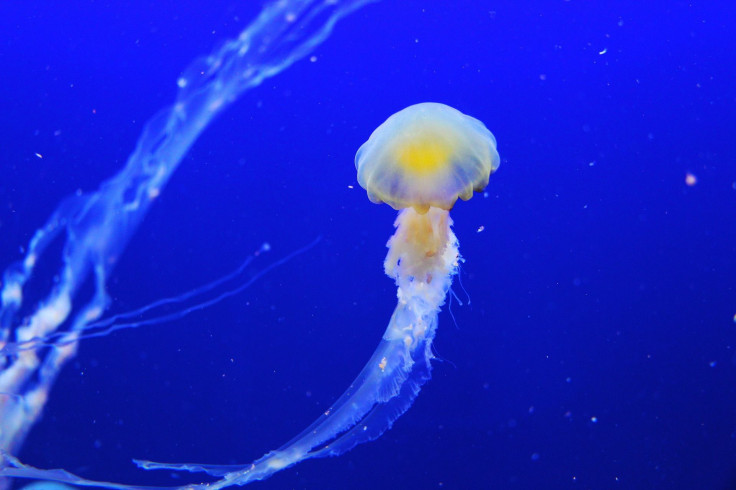Home Remedies For Jellyfish Stings: Common Cures Make Matters Worse, According To New Study

Spring is here and summer is close on its heels. Those rising temps mean more time at the beach, which also means more jellyfish stings. According to The National Science Foundation, 200,000 people are stung by jellyfish every year in Florida alone. Worldwide, 150 million people are exposed to jellyfish each year. The Huffington Post reported that experts believe jellyfish stings are an increasing health concern with overfishing and climate change creating environments that help the animals flourish.
“Across the world, we’re seeing more sinister types of jelly blooms, in oceans that have been under pressures from our own mismanagement and our own pollutants,” Biochemist at the University of Hawaii Dr. Angel Yanagihara, Ph.D, explained in the paper.
You might have heard (through Google or misinformed friends) that rinsing the area with seawater, scraping away the tentacles and treating the sting with ice is the best remedy, however researchers at the University of Hawai'i – Mānoa say otherwise.
Read: Sea Lice Infestations Reported On Florida Beaches; Should Ocean Bathers Prepare For Itchy Rashes?
"We put those methods to the test in the lab, and found they actually make stings much, much worse," said Yanagihara in a story on MedicalXpress about a new piece of research he co-authored.
The professor and his team examined the best way to deal with stings from two dangerous box jelly species. Box jellies are some of the most dangerous ocean animals and are responsible for even more deaths than sharks.
They tried out several methods of removing tentacles, like rinsing with seawater, plucking and scraping, to see which worked best. Researchers found that rinsing with seawater and scraping actually increased the severity of the stings. Instead, they advise rinsing with vinegar and plucking remaining tentacles to minimize the amount of venom injected.
Read: 4 Animal Attack Myths: You May Want To Think Before Peeing On That Jellyfish Sting
"Box jellies are incredibly dangerous animals. The more venom they inject, the more likely a victim is to suffer severe, even life threatening symptoms," said Yanagihara. "The increases in venom injection and activity we saw in our study from methods like scraping and applying ice could mean the difference between life and death in a serious box jelly sting."
See Also:
Can A Drink Prevent Skin Cancer? Drinkable Sunscreen Company Sued Over 'Osmosis' Protection Claims
Man Swimming At Texas Beach Catches Flesh-Eating Bacterial Infection, The 2nd Case In 2 Weeks



























